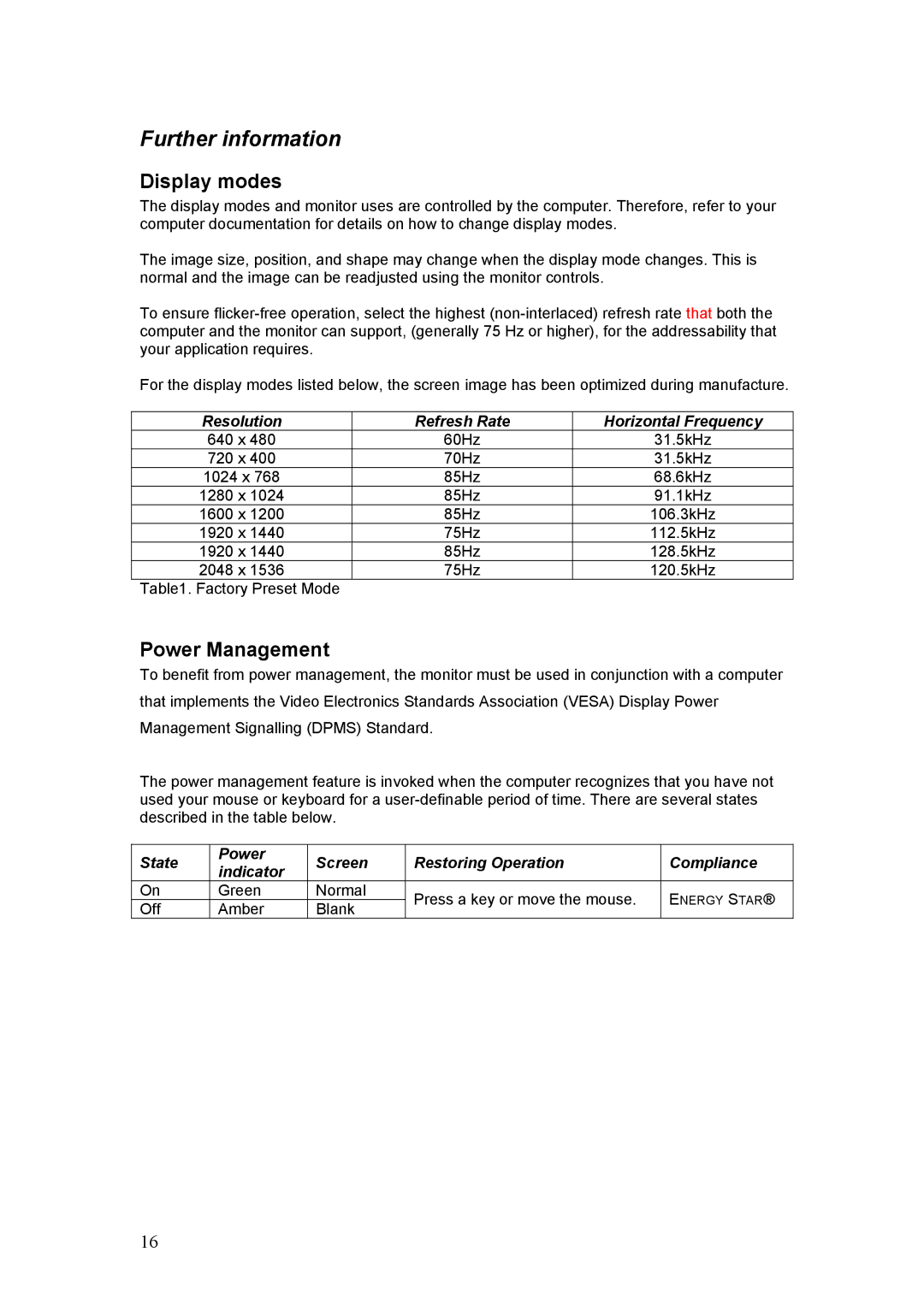Further information
Display modes
The display modes and monitor uses are controlled by the computer. Therefore, refer to your computer documentation for details on how to change display modes.
The image size, position, and shape may change when the display mode changes. This is normal and the image can be readjusted using the monitor controls.
To ensure
For the display modes listed below, the screen image has been optimized during manufacture.
Resolution | Refresh Rate | Horizontal Frequency |
640 x 480 | 60Hz | 31.5kHz |
720 x 400 | 70Hz | 31.5kHz |
1024 x 768 | 85Hz | 68.6kHz |
1280 x 1024 | 85Hz | 91.1kHz |
1600 x 1200 | 85Hz | 106.3kHz |
1920 x 1440 | 75Hz | 112.5kHz |
1920 x 1440 | 85Hz | 128.5kHz |
2048 x 1536 | 75Hz | 120.5kHz |
Table1. Factory Preset Mode
Power Management
To benefit from power management, the monitor must be used in conjunction with a computer that implements the Video Electronics Standards Association (VESA) Display Power Management Signalling (DPMS) Standard.
The power management feature is invoked when the computer recognizes that you have not used your mouse or keyboard for a
State | Power | Screen | Restoring Operation | Compliance | |
indicator | |||||
|
|
|
| ||
On | Green | Normal | Press a key or move the mouse. | ENERGY STAR® | |
Off | Amber | Blank | |||
|
|
16
